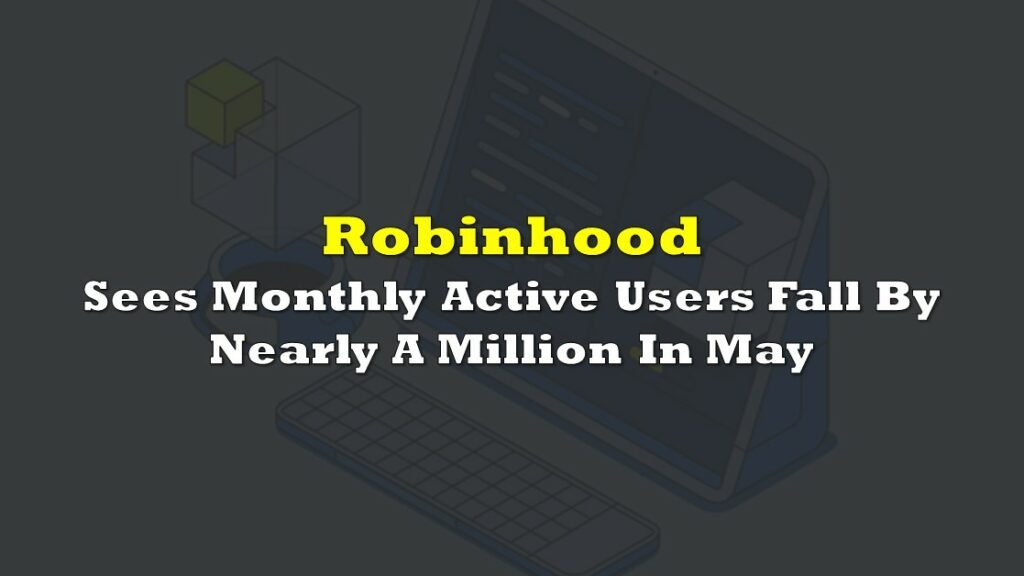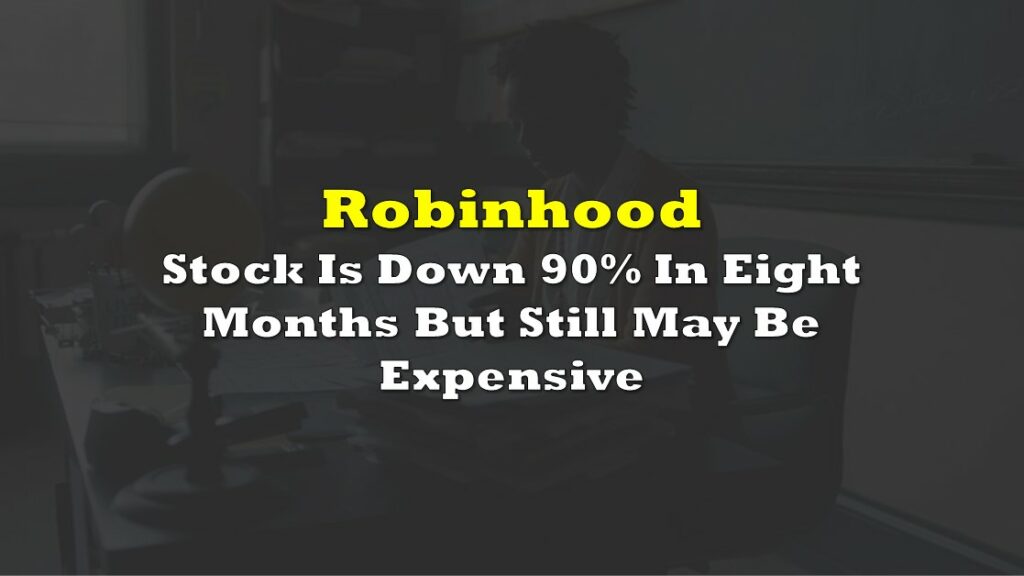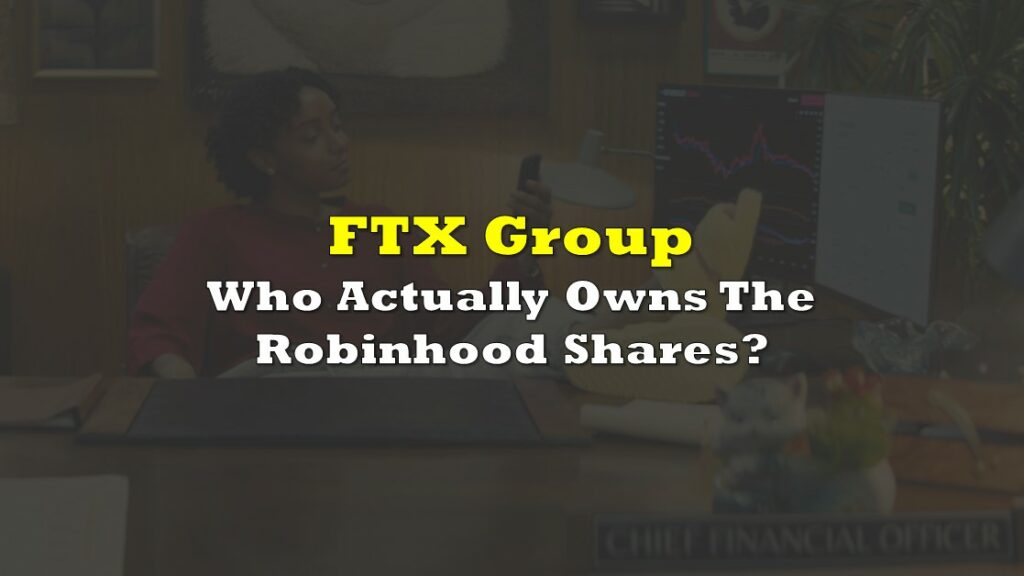Stock-based compensation paid to employees by selected growth companies that this column follows closely was generally less egregious in the second half of 2022 than in the first half of 2022, but the levels of this compensation remain ridiculously high.
In simple terms, even though both the operating results and the stock performances of Coinbase Global, Inc. (NASDAQ: COIN), Robinhood Markets, Inc. (NASDAQ: HOOD), Lucid Group, Inc. (NASDAQ: LCID), and Rivian Automotive, Inc. (NASDAQ: RIVN) have been extremely disappointing since year-end 2021, the companies continue to transfer an inordinate amount of shareholder value to employees and away from investors.
The great majority of a company’s share-based compensation is expensed (a small portion is typically attributed to capital spending) and causes the company to report “low” levels of earnings under GAAP accounting rules. However, a company often discloses a companion (company-friendly) “adjusted EBITDA” figure, whereby the share-based compensation line item is added back to operating earnings plus depreciation to create a pro forma operating cash flow scenario which assumes no stock issuances were made to employees.
READ: Coinbase Preemptively Takes SEC To Court, But Is It A Smart Move?
In bull markets, investors often accept “adjusted EBITDA” as an indication of a company’s cash flow capabilities and do not ask many questions about how the measure is computed. In other words, they are willing to ignore the huge amount of stock-based compensation many growth companies hand out to employees in place of cash compensation.
However, when investors are less uniformly ebullient, they are reluctant to value growth companies almost solely based on adjusted EBITDA, particularly in cases where the stock-based compensation add-back is quite large (and, in many cases, unjustified).
The table below lists key financial parameters of four high-valuation, early stage growth companies: fintech players Coinbase and Robinhood; and electric vehicle developers Lucid and Rivian.
Key Financial and Operating Statistics of Selected High-Valuation Growth Companies
| (in millions of U.S. dollars) | COINBASE | ROBINHOOD | LUCID | RIVIAN |
| Revenue in Full-Year 2022 | $3,149.2 | $1,358.0 | $608.2 | $1,658.0 |
| Adjusted EBITDA in Full-Year 2022 | ($371.4) | ($94.0) | ($1,974.4) | ($5,217.0) |
| Stock-Based Compensation in Full-Year 2022 | $1,565.8 | $654.0 | $423.5 | $987.0 |
| as a % of Revenue | 49.7% | 48.2% | 69.6% | 59.5% |
| as a % of Adjusted EBITDA | NM | NM | NM | NM |
| Adjusted EBITDA in Full-Year 2022 WITHOUT Share-Based Compensation Add-Back | ($1,937.2) | ($748.0) | ($2,397.9) | ($6,204.0) |
| Revenue in 2H 2022 December 31, 2022 | $1,174.4 | $741.0 | $453.2 | $1,199.0 |
| Adjusted EBITDA in 2H 2022 Ended December 31, 2022 | ($240.0) | $129.0 | ($1,176.5) | ($2,768.0) |
| Stock-Based Compensation in 2H 2022 Ended December 31, 2022 | $822.2 | $270.0 | $154.6 | $428.0 |
| as a % of Revenue | 70.0% | 36.4% | 34.1% | 35.7% |
| as a % of Adjusted EBITDA | NM | 209.3% | NM | NM |
| Adjusted EBITDA in 2H 2022 Ended December 31, 2022 WITHOUT Share-Based Compensation Add-Back | ($1,062.2) | ($141.0) | ($1,331.1) | ($3,196.0) |
| Revenue in 1H 2022 Ended June 30, 2022 | $1,974.8 | $617.0 | $155.0 | $459.0 |
| Adjusted EBITDA in 1H 2022 Ended June 30, 2022 | ($131.4) | ($223.0) | ($797.9) | ($2,449.0) |
| Stock-Based Compensation in 1H 2022 Ended June 30, 2022 | $743.6 | $384.0 | $268.9 | $559.0 |
| as a % of Revenue | 37.7% | 62.2% | 173.5% | 121.8% |
| as a % of Adjusted EBITDA | NM | NM | NM | NM |
| Adjusted EBITDA in 1H 2022 Ended June 30, 2022 WITHOUT Share-Based Compensation Add-Back | ($875.0) | ($607.0) | ($1,066.8) | ($3,008.0) |
| Revenue in Full-Year 2021 | $7,839.4 | $1,815.1 | $27.1 | $55.0 |
| Adjusted EBITDA in Full-Year 2021 | $4,090.1 | $34.0 | ($951.7) | ($2,790.0) |
| Stock-Based Compensation in Full-Year 2021 | $820.9 | $1,572.0 | $516.8 | $570.0 |
| as a % of Revenue | 10.5% | 86.6% | NM | NM |
| as a % of Adjusted EBITDA | 20.1% | NM | NM | NM |
| Adjusted EBITDA in Full-Year 2022 WITHOUT Share-Based Compensation Add-Back | $3,269.2 | ($1,538.0) | ($1,468.4) | ($3,360.0) |
| % Change in Stock Price Since 12/31/21 | -78% | -47% | -82% | -88% |
| % Change in Stock Price Since 12/31/22 | 55% | 15% | 2% | -33% |
Remarkably, share-based compensation represented between 48% and 70% of each of the four companies’ revenues (with Robinhood at the low end of the range and Lucid the highest figure). To put this percentage into perspective, share-based compensation represents only 10.5% of revenue for a typical software company, according to the equity research firm MoffettNathanson. Of course, the software industry was one of the pioneers of this form of compensation.
A slight (relative) positive: stock-based compensation equaled about 35% of 2H 2022 revenue at Robinhood, Lucid and Rivian, down from higher rates in the first half of 2022. Coinbase was a negative outlier; such compensation at the crypto exchange operator rose to 70% of its revenues in the second half of 2022.
All four companies reported negative adjusted EBITDA in the full year 2022, yet still rewarded employees with substantial stock awards. The same statement holds for 2H 2022, except for Robinhood. During that six-month period, that company issued stock-based compensation equivalent to more than twice its adjusted EBITDA.
The four stocks are down between 47% and 88% since year-end 2021, but Robinhood, Lucid, and particularly Coinbase have gained over the first four months of 2023. Only Rivian is down year-to-date (-33%).
Information for this briefing was found via Edgar and the sources mentioned. The author has no securities or affiliations related to this organization. Not a recommendation to buy or sell. Always do additional research and consult a professional before purchasing a security. The author holds no licenses.









